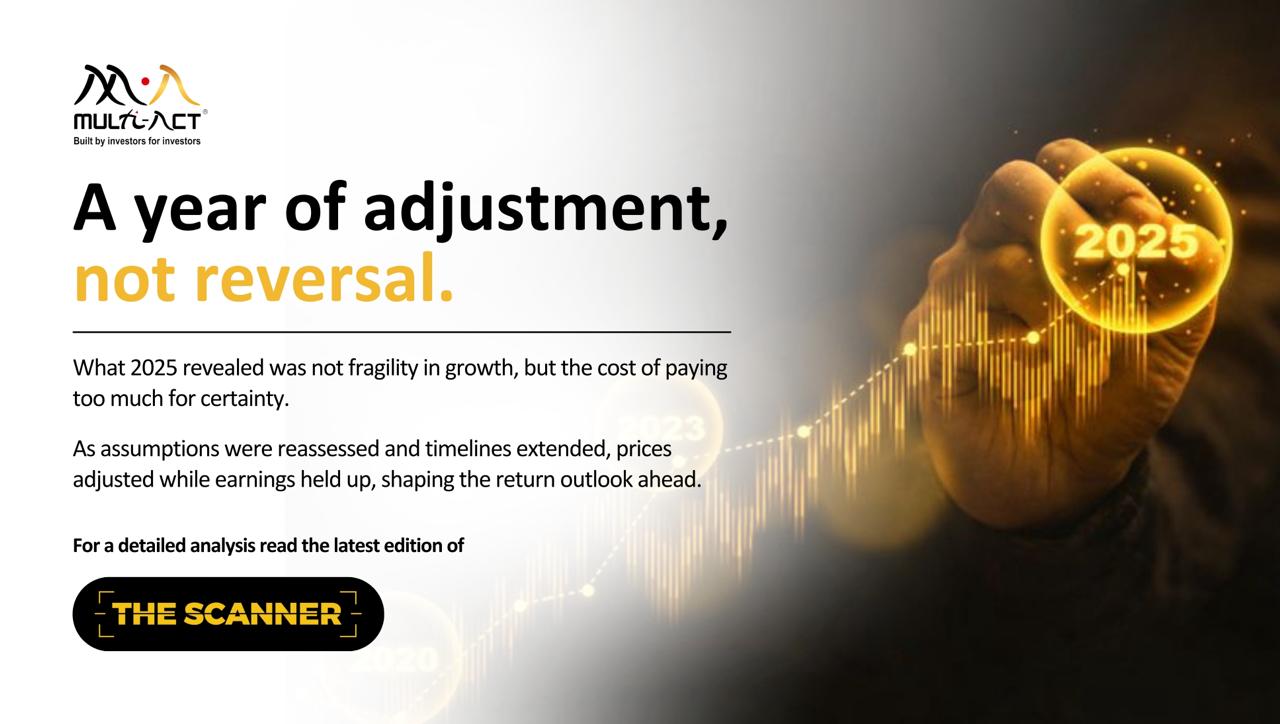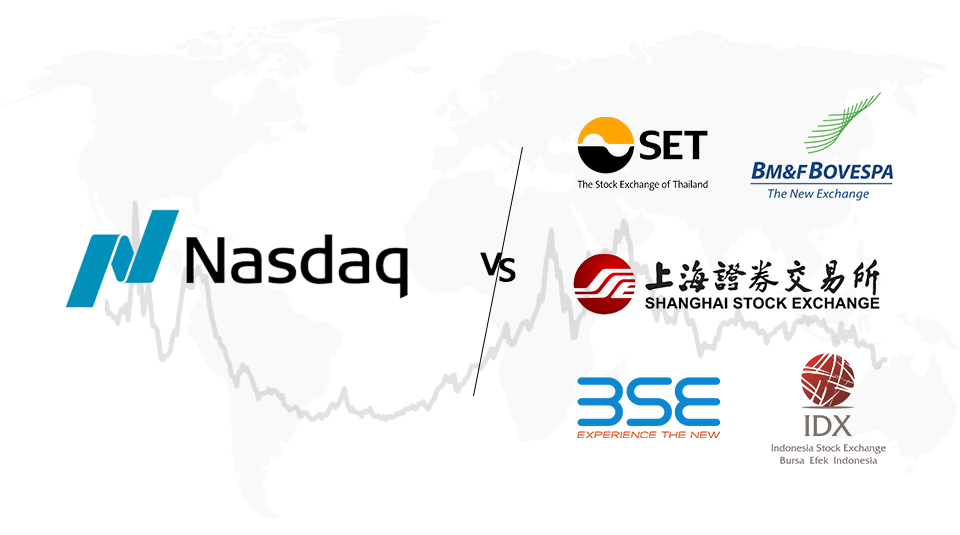
What Happened and What’s in Store for 2026
2025 did not challenge growth. It challenged assumptions. As expectations moved ahead of actual delivery, prices adjusted … Continued
Read more14 August 2020

Note: All returns numbers mentioned are in US$ terms.
The trend of US equities outperforming Emerging Market equities had started in 2011. After underperforming for about 10-12 years post tech bubble burst (1999 – 2011), S&P500 divided by MSCI EM ratio started to rise, denoting US market outperformance.

During last 10 years, S&P500 has delivered +11.5% whereas MSCI Emerging Markets has returned a mere +0.6% CAGR.
10-year CAGR differential has thus increased to -11% from +7% during 2013.

Something similar is evident with Indian markets as well. We can see US$ returns differential between Nifty 500 and S&P 500 in below chart.
While not yet at historical bottoms of “Tech Boom” period, we now certainly have seen a prolonged period of NSE 500 underperformance in US$ terms.

10-years US$ returns differential between S&P500 and Nifty500 is also probably nearing its cyclical lows.

These are some very long-term regimes, that need time to turn. But once reversed, they can have a major implication on any long-term portfolio.
Avenues are opening for Indians to invest abroad. There are brokers who have started to provide facilities to invest online, there are feeder funds in India that helps invest in funds domiciled outside India and there are Indian funds that invest outside India.
Indians are also increasingly looking to allocate capital globally, probably looking at “long term returns” and returns differentials of last 10 years.
It is thus important to be aware of such regime shifts while constructing and maintaining portfolios for longer haul to avoid getting caught on the wrong end of the cycle.
Amongst other observations and updates, Multi-Act follows such long-term trends to get an indication of regime changes as part of its Global Macro Overview reports. They are published to clients every quarter.
We also cover about 200 high quality global companies for advising on families and investment managers portfolios.
Our “Global Moats Fund” also allows investors to invest in High Quality businesses, including that in emerging markets where we currently are finding opportunities.
To know more, please contact: https://multi-act.com/contact-us#Marketing_head

2025 did not challenge growth. It challenged assumptions. As expectations moved ahead of actual delivery, prices adjusted … Continued
Read more
Macro numbers alone rarely tell the full story. When jobs, consumption, credit, and inflation are considered together, … Continued
Read more
The AI story everyone sees is technological. The story that a few notice is financial. Revolving expenditures, … Continued
Read moreReceive monthly updates by signing up to our newsletter.
| Sr. No. | Received from | Pending at the end of last month | Received | Resolved* | Total Pending # | Pending complaints > 3 months | Average Resolution time^ (in days) |
|---|---|---|---|---|---|---|---|
| 1 | Directly from Investors | 0 | 0 | 0 | 0 | 0 | 0 |
| 2 | SEBI (SCORES) | 0 | 0 | 0 | 0 | 0 | 0 |
| 3 | Other Sources (if any) | 0 | 0 | 0 | 0 | 0 | 0 |
| Grand Total | 0 | 0 | 0 | 0 | 0 | 0 | |
Number of complaints received during month against the IA due to impersonation by some other entity: Nil
Note: In case of any complaints received against the IA due to impersonation of the IA by some other entity, the IA may adjust the number of such complaints from total number of received/resolved complaints while preparing the above table. Further, IA must close such impersonation related complaints after following the due process as specified by SEBI/ IAASB.
* Inclusive of complaints of previous months resolved in the current month.
# Inclusive of complaints pending as on the last day of the month.
^ Average Resolution time is the sum total of time taken to resolve each complaint in days, in the current month divided by total number of complaints resolved in the current month.
| Sr. No. | Month | Carried forward from previous month | Received | Resolved* | Pending# |
|---|---|---|---|---|---|
| 1 | April, 2025 | 0 | 0 | 0 | 0 |
| 2 | May, 2025 | 0 | 0 | 0 | 0 |
| 3 | June, 2025 | 0 | 0 | 0 | 0 |
| 4 | July, 2025 | 0 | 0 | 0 | 0 |
| 5 | August, 2025 | 0 | 0 | 0 | 0 |
| 6 | September, 2025 | 0 | 0 | 0 | 0 |
| 7 | October, 2025 | 0 | 0 | 0 | 0 |
| 8 | November, 2025 | 0 | 0 | 0 | 0 |
| 9 | December, 2025 | 0 | 0 | 0 | 0 |
| Grand Total | 0 | 0 | 0 | 0 | |
* Inclusive of complaints of previous months resolved in the current month.
# Inclusive of complaints pending as on the last day of the month.
| SN | Year | Carried forward from previous year | Received | Resolved* | Pending# |
|---|---|---|---|---|---|
| 1 | 2021-22 | 0 | 0 | 0 | 0 |
| 2 | 2022-23 | 0 | 0 | 0 | 0 |
| 3 | 2023-24 | 0 | 0 | 0 | 0 |
| 4 | 2024-25 | 0 | 0 | 0 | 0 |
| Grand Total | 0 | 0 | 0 | 0 | |
* Inclusive of complaints of previous years resolved in the current year.
# Inclusive of complaints pending as on the last day of the year.